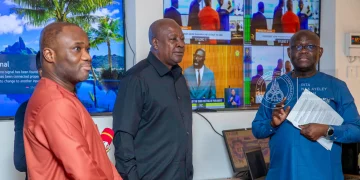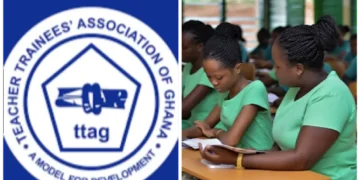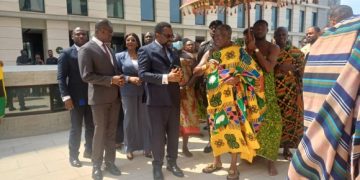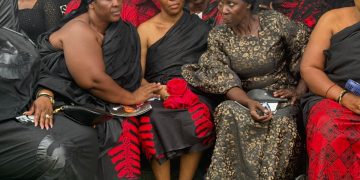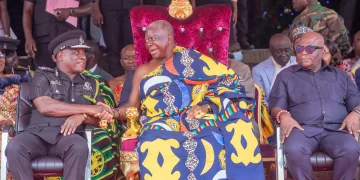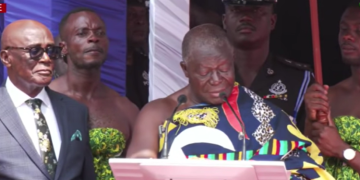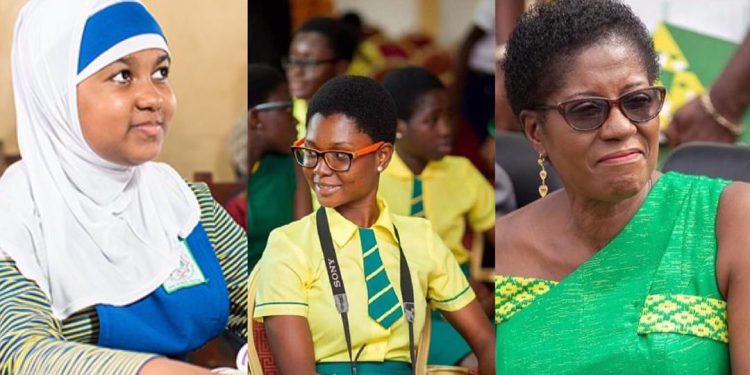The Attorney-General has filed a motion at the Supreme Court seeking permission for the 2nd and 3rd Defendants the Ghana Education Service (GES) and the Attorney-General to withdraw and replace their earlier Statement of Case in the ongoing lawsuit involving Wesley Girls’ High School and the enforcement of religious rights in public schools.
The motion, filed on October 31, 2025, requests leave of the court to substitute the original defence with a new, comprehensive Statement of Case.
The Attorney-General argues that the revised document is necessary to present a full response to the constitutional claims brought by the Plaintiff.
The case, filed under the Supreme Court’s original jurisdiction, challenges Wesley Girls’ High School’s long-standing faith-based rules that limit the practice of Islam on campus.
The Plaintiff is seeking several declarations that the school’s policies particularly its “Institutional Faith Clause” violate constitutional guarantees of freedom of religion, equality, and non-discrimination.
Plaintiff Challenges Religious Restrictions
In the suit, the Plaintiff alleges that the school prohibits Muslim students from observing key Islamic religious duties, including daily prayers, Jummah, fasting during Ramadan, and wearing Islamic attire. The action argues that these restrictions breach Articles 12, 17, 21, 26, and 56 of the 1992 Constitution and international human rights provisions applicable in Ghana.
The Plaintiff is also seeking orders restraining Wesley Girls’ High School and the Ghana Education Service from enforcing the impugned religious policies, and directing the Education Service to enact new guidelines on religious freedoms in public schools.
State Argues School’s Right to Maintain Methodist Identity
In the new draft Statement of Case attached to the Attorney-General’s motion, the State argues that Wesley Girls’ High School is a Methodist mission school with a distinct religious identity, though it receives government support. It contends that the school, as a faith-based institution, retains the constitutional right to practice and promote its religious traditions.
The Attorney-General cites legal precedents including the CIBA case and James Kwabena Bomfeh v Attorney-General to argue that religious institutions are entitled to government assistance without forfeiting their doctrinal autonomy.
The State also references international law, including the International Covenant on Civil and Political Rights (ICCPR), which protects the rights of parents to choose education consistent with their beliefs.
According to the Attorney-General, permitting unrestricted religious activities of other faiths on campus would undermine Wesley Girls’ ability to maintain its Methodist ethos.
Historical and Legal Background Cited
The State’s argument traces the long-standing partnership between government and mission schools, which dates back to the 19th century Education Ordinances and continues under the current Pre-Tertiary Education Act, 2020 (Act 1049). These laws recognize the unique character of faith-based schools and their role in the national education system.
The Attorney-General maintains that Wesley Girls’ “assisted school” status does not convert it into a state-owned institution and therefore does not eliminate its religious rights.
State Wants Case Dismissed
In its concluding submission, the Attorney-General argues that the Plaintiff is not entitled to the reliefs sought and asks the Supreme Court to dismiss the action entirely.
The Supreme Court is expected to hear the motion to amend the Statement of Case on a date to be announced. The outcome will shape the next phase of a nationally significant case that touches on religious freedoms, the rights of students, and the autonomy of faith-based schools within Ghana’s public education system.
Source: www.kumasimail.com





